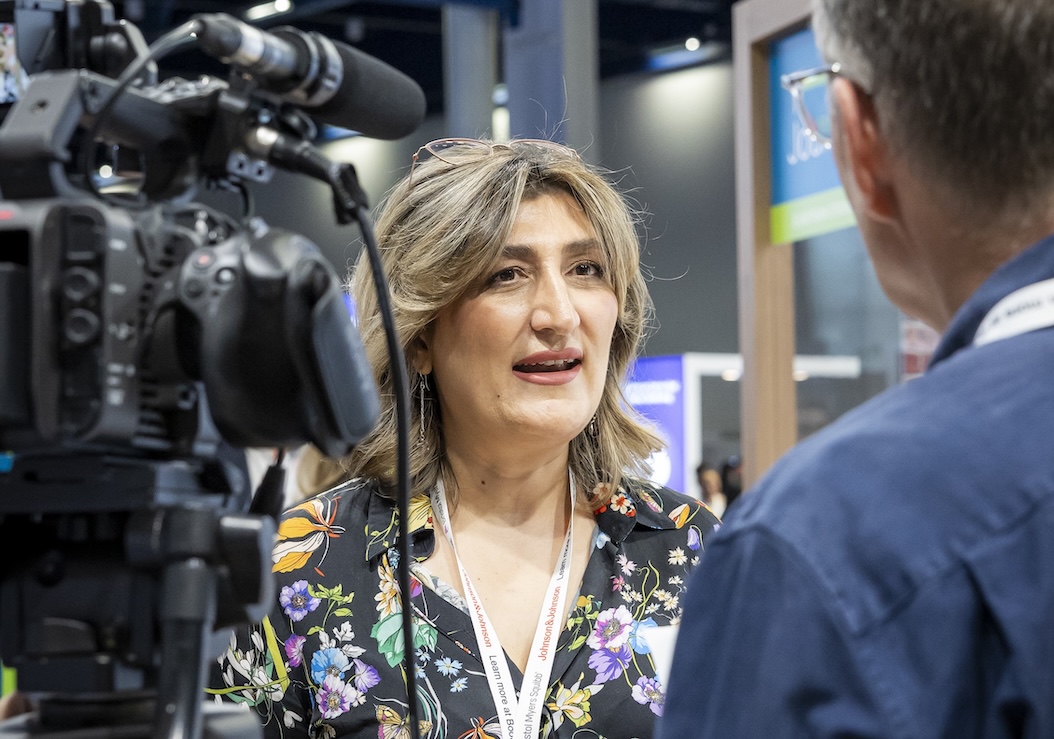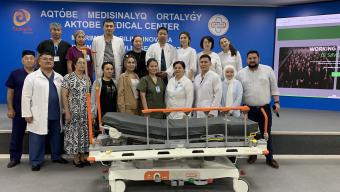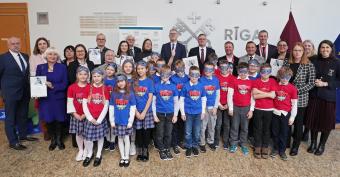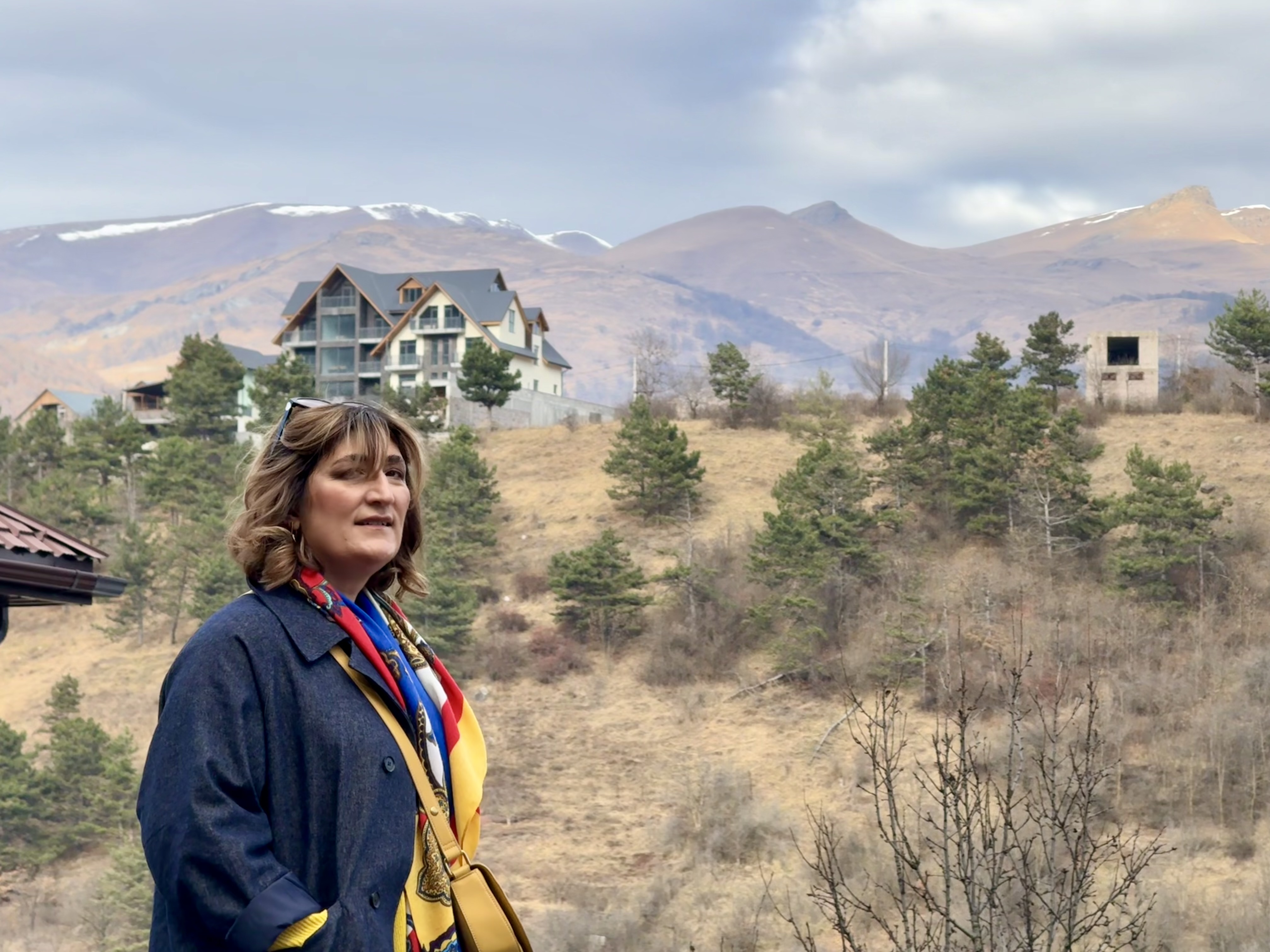
Helsinki is not Dr Nune Yeghiazaryan’s favourite city.
“I’m sorry,” she remembers to say to the Finnish videographer who is recording this conversation.
But even though this isn’t, say, Paris or Rome, a familiar impulse to share the emotions and the experiences with people she likes, follows her around the Finnish capital.
Just yesterday she was urging her Armenian fellow delegates to ESOC to shop for something local – like Marimekko, the Finnish brand whose iconic patterns have been reborn in thousands of printed colour palettes since the 1950s.
And she is traveling, as always, with the attitude of a student: “I am reading every statue trying to understand, who is that? Why is he standing there, why is he important for Finland?”
But today’s conversation is about why Dr Nune Yeghiazaryan’s work is important for Armenia, with a sidebar on the importance of dreams in a post-Soviet society. An invitation to Armenia will be extended as a matter of course.
The story of how Nune became, first, a medical doctor, and later, head of neurology at Erebouni Medical Center in Yerevan, president of the Armenia Stroke Council, member of the European Academy of Neurology, the ESO and the WSO, and a Spirit of Excellence award nominee in 2025, begins in a Soviet school where she excelled.
“My parents and grandparents are very, very proud of me because I am the best in the school,” she recalls. “And in Soviet Armenia, it was accepted that the good pupils became either doctors or lawyers. But I’m a girl. And according to my grandfather, becoming a lawyer is not an appropriate profession for a girl. Right from the start he insisted, you are so good, you are so clever, you should be a doctor.”
Her mother joined the cause and, on the misunderstanding that a growing incidence of stress-related disorders she perceived in the community meant specialists in nervous disorders would be in high demand, made the case for neurology.
By the time Nune graduated from medical school, the decision had been made for her.
At the end of her residency at Yerevan State Medical University under the supervision of prof. Vahagn Darbinyan, Nune followed her professor into epilepsy, built her reputation in epilepsy genetics and sleep disorders, and became head of the busy neurology department at one of the biggest hospitals in the Republic of Armenia several years before it would become a leading implementer of Armenia’s National Stroke Program.
The new head of neurology soon discovered that stroke accounted for between 80 and 90 percent of her patients, and that they were ill prepared to offer appropriate care. “We didn’t even consider etiology or specific, secondary prophylaxis,” she says, “we were just giving aspirin and waiting.”
For a while the situation seemed hopeless, but then, in the darkness, the stars came out.

Stars to go towards
When she looks back at pictures taken in Barcelona during ESOC 2016, Dr Yeghiazaryan is reminded of a young, shy Nune who was perhaps a little bewildered at finding herself in the orbit of women like ESO president elect Valeria Caso, and Francesca Romana Pezzella.
The official launch of the Angels Initiative, the establishment of the stroke care quality improvement registry RES-Q, and the first anniversary of ESO-EAST (a program to improve stroke care quality in Eastern Europe) made 2016 a momentous year for stroke. “All of a sudden I became part of that,” Nune says.
Stroke transformation in Armenia already had some momentum thanks to the intervention of expatriate Armenian specialists, including Canada-based Dr Mikael Skon Muratoglu, who offered food for thought. “There are two phrases he says very frequently about us Armenian Armenians,” Nune says. “One was that we had lost the ability to dream. When in 2013 he spoke about thrombolysis and thrombectomy becoming available in Armenia, and we said oh, that will not be possible, ever, he said, how dare you not dream? You have let the Soviet even destroy your dreaming!
“And the second thing he was always telling us was, if not now, then when? If not you, then who? Of course, he was saying that to all of us, but only some of us took it literally and followed that command.”
Following that command more than defined Nune’s professional life: it has put her in the service of her country. She says, “It’s not just serving the patients, but the sense that you are doing something on a national basis and taking responsibility for the stroke service throughout the country. You have to do that. And it is more than pleasant. It is a duty towards the country, towards the patients, towards my colleagues, that I feel I must carry.
“I don’t only like it, I love it. I feel myself confident in it.
“Previously, when I was training I may have felt it was safer to join the team and follow the team rather than be on the frontier, a pioneer. It is difficult but to tell you the truth I had some stars to go towards.
“I was not alone and finding my way through the stars. There were people who guided me, I have people I can turn to for advice, who can support me, and Angels was one of them. But I also understand that there are situations where you have to decide by yourself, you have to have the ability to make a decision.”
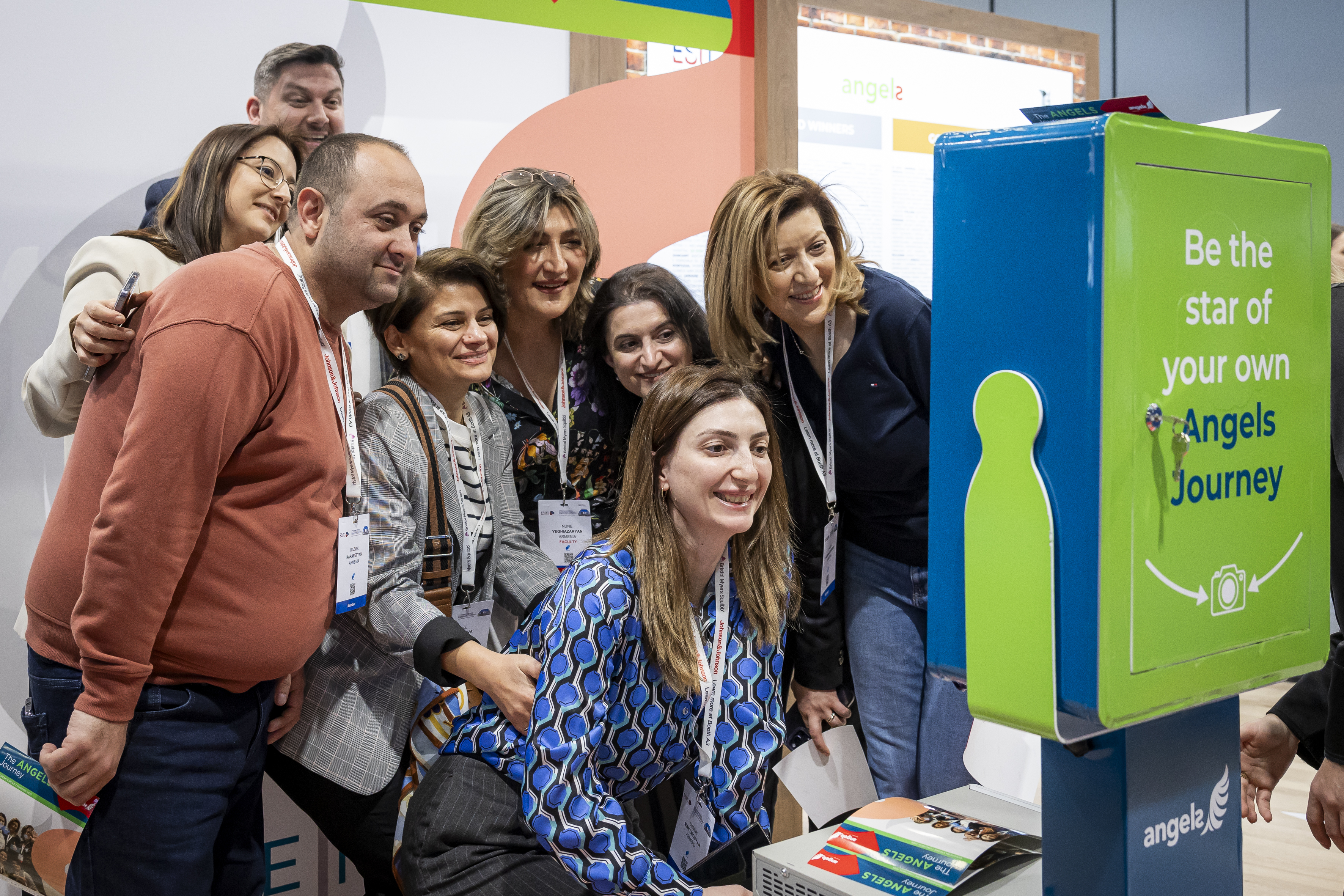
Armenian angels
Although Angels had no formal presence in Armenia, Nune would find an invaluable ally in Lev Prystupiuk, the Angels consultant from Ukraine whose benign influence spans countries from Eastern Europe to Central Asia. When Covid hit, his support moved online. Two years later, the Russia invasion of Ukraine further limited Lev’s ability to travel to Yerevan, but he has remained their steadfast Armenian angel. “We very much need them,” Nune says.
Thrombolysis and mechanical thrombectomy were available in Yerevan from 2016, at the outset only to patients who could cover the costs. But in 2019, the government of Armenia launched the National Stroke Program, initially with Erebouni Medical Center and Yerevan State Medical University Hospital as comprehensive stroke centers. A government decree lead to the formation of the Armenian Stroke Council as scientific advisory body, with Dr Nune Yeghiazaryan in the role of president. Since then, substantial advances have been made in building medical infrastructure and delivering acute stroke care, including in locations far from the capital, in one instance with the aid of telemedicine. Two hospitals in Armenia have received ESO Angels diamond awards.
There has been a continued focus on education. The fifth Armenian Spring Stroke School took place just before the Armenian delegation arrived in Helsinki. The National Stroke Database was poised for lift-off, and the Ministry of Health was about to sign the SAP-E declaration, signalling its commitment to the aims of the Stroke Action Plan for Europe.
At Erebouni Medical Center, when Dr Nune has the opportunity to handpick her coworkers from a new intake of residents, she knows what she is looking for. “I will choose the one with a kind personality and empathy for the patients. Scientific knowledge is next but their attitude towards patients is very important, how empathetic and caring there are.”
Like the willingness to lead from the frontier, this is not a quality that can be taught. “I don’t remember my professor teaching me that. He just behaved like that, and if you had the capacity for empathy, you followed his example. It’s very important for a doctor. If you don’t make an effort to listen or understand the patient, you can miss a lot of symptoms. Our professor made us understand that the patient was the most important – their wellbeing and comfort – and that the most important person in the situation wasn’t you.”
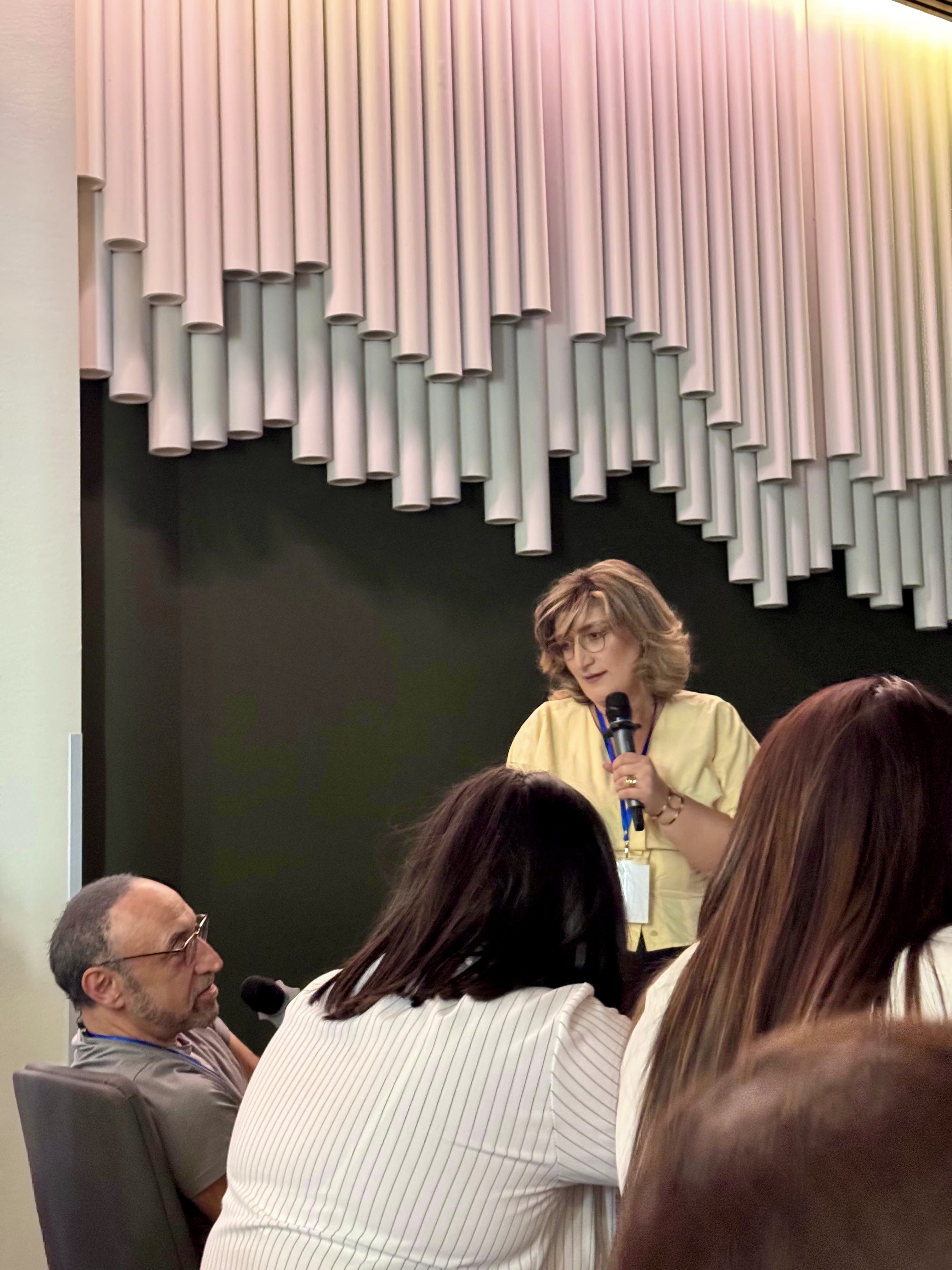
More about dreams
Nune’s bio on the Angels website (where she appears in her capacity as steering committee member) uniquely concludes with a bit of personal information: “Dr Yeghiazaryan is very fond of traveling and discovering new places and new people. She enjoys swimming, the beach, and good food and cooking.”
She knows her mother’s recipes by heart, the correct ingredients and sequence of actions, but except for a few times a year, there are more important things to do, Nune says. One is making sure that international experts who come to Armenia for stroke schools and conferences leave the country with admiration in their hearts.
It’s not only her doing, it’s a national trait. “We like to show you where to walk, where to sit and have a coffee or a cognac or something. Every visitor gets this personal and very, very kind attention. Armenians show you the country to make you fall in love with it and come back.”
She hopes we will visit. “Just find me. I will make your being in Armenia wonderful, believe me.”
We do.
Dr Nune has not exhausted her capacity for dreaming, but what she most urgently desires is a mind at ease about the health and welfare of the people she loves. “I’m a very anxious person,” she confides, constantly worried about the health of her father and brother.
“To work at full strength, I need to feel certain that everyone is okay and in a good place. Then I could work even harder to improve the life of the patients. It would make my life much, much, much easier.
“So I dream with all my heart.”
